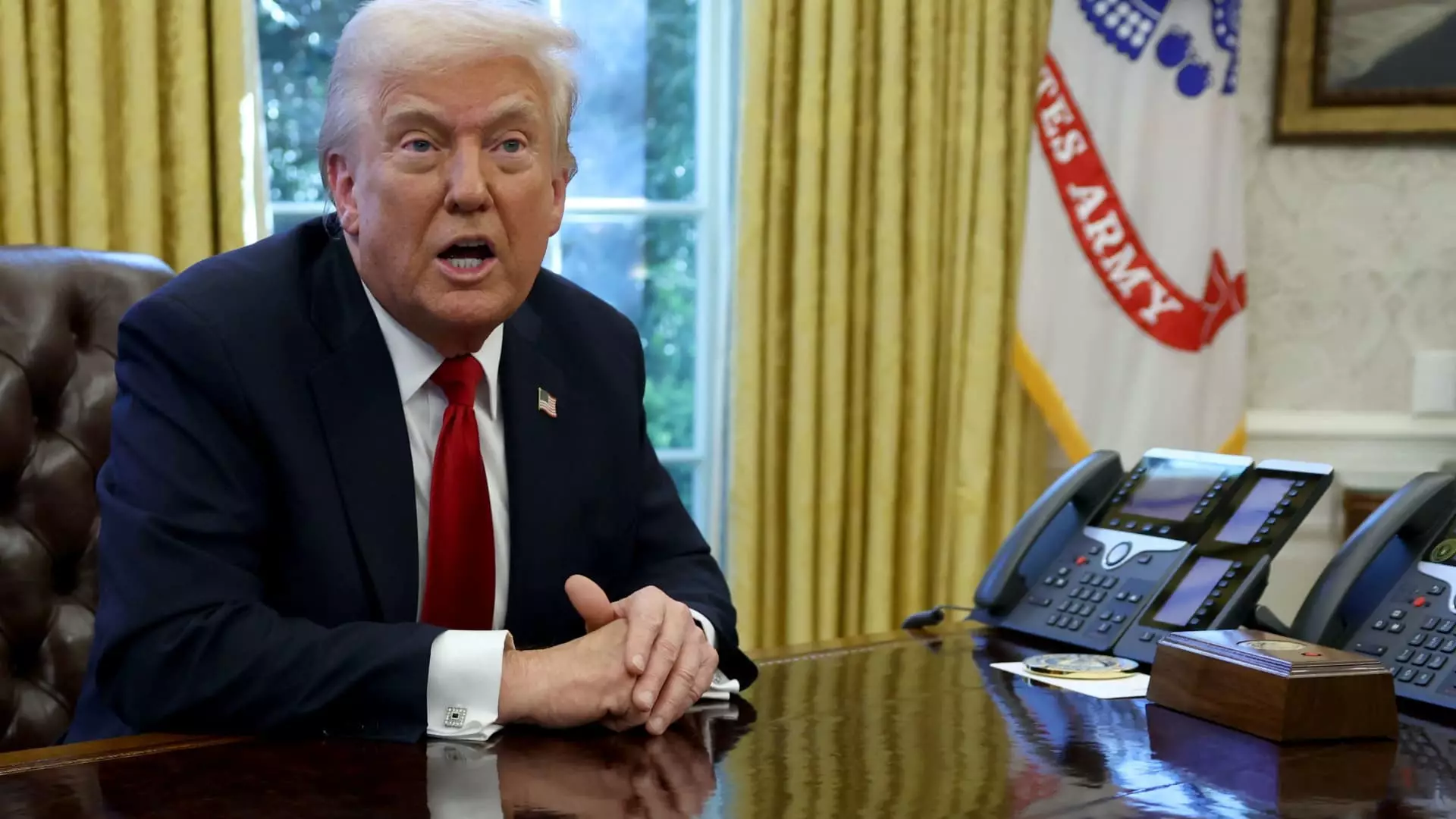In a bold and controversial move, President Donald Trump declared his intention to impose a sweeping 25% tariff on all cars imported into the United States that are not manufactured domestically. This announcement has sparked immediate reactions across various sectors, particularly in the automotive industry, where the implications of such tariffs could reverberate for years. With a renewed emphasis on American manufacturing, Trump’s policies have been met with a mix of enthusiasm and skepticism. The intersection of politics and the automotive world has suddenly become a focal point of national dialogue.
One of the most intriguing elements of this announcement involves Tesla’s CEO, Elon Musk, who has been positioned as a key advisor to Trump. Musk’s dual role as a business mogul and presidential advisor creates a unique environment, especially since Trump indicated that Musk might not share his thoughts due to a potential conflict of interest. It raises the question of how involved Musk is in the broader economic implications of these tariffs. Will he champion the tariffs as a way to bolster his business, or might he quietly object, recognizing the complexities they introduce to global supply chains?
Musk’s Influence and the Role of Government Efficiency
Musk’s influence extends beyond Tesla; his leadership role in the Department of Government Efficiency (DOGE) signals a concentrated effort to streamline government spending and restructure agencies. This intersection of business acumen and government policymaking paints a picture of an administration keen on encouraging innovation—albeit with a heavy hand in trade policy.
The Trump administration has demonstrated a preference for tariffs as a tool to incentivize domestic manufacturing, claiming that such measures will ultimately benefit American workers and businesses. However, the reliance on tariffs can be a double-edged sword. In an industry where parts are frequently sourced from global suppliers, the 25% tariff might inadvertently depress the very companies it seeks to protect, including Tesla. In a recent missive to the U.S. Trade Representative, Tesla pointed out the significant challenge in sourcing essential components domestically, highlighting a contradiction in the overarching goals of the administration.
The Hypothetical Benefits for Domestic Manufacturers
While it is essential to consider the potential hurdles, it is equally important to explore how these tariffs might be viewed as an opportunity for Tesla and other American auto manufacturers. Trump cited Tesla’s assembly plants in Texas and California, suggesting that the tariffs might indeed create a more favorable environment for companies with domestic operations. However, this assertion requires critical examination. Can Tesla simply absorb additional costs associated with tariffs, or will this lead to higher prices for consumers and a slowdown in market competitiveness?
Furthermore, the automotive landscape is evolving rapidly, with a host of manufacturers entering the electric vehicle (EV) arena. Major competitors like General Motors and Ford have committed substantial resources to their EV divisions, and the stakes are higher than ever with the sustainable automotive revolution looming. If Tesla’s competitors can navigate the implications of tariffs more adeptly, they could seize market share previously dominated by Musk’s enterprise.
Global Supply Chains and Competitor Landscape
Tesla’s dependency on international suppliers underscores the growing concern surrounding globalization versus nationalism in the automotive sector. The complex supply chains that support the production of vehicles necessitate an intricate balancing act. With critical components often sourced from countries like Mexico, Canada, and China, the tariff-driven landscape complicates manufacturing forecasts and profitability.
Interestingly, Tesla faces fierce competition from global players like BYD, which, despite its strength in the battery electric vehicle market, has struggled to penetrate the U.S. market. If tariffs alter competitive dynamics, will Tesla find itself enduring more pressure from domestic and foreign rivals seeking to capitalize on increased production costs and strategically shift their supply chains?
Trump’s tariff announcement may resonate in ways that are not immediately apparent. While aimed at bolstering American manufacturing, the downstream consequences could foster a more complex environment for companies like Tesla, with Musk at the center of both innovation and political maneuvering. As the conversation evolves, it remains to see whether this policy will foretell a renaissance of American automotive prowess or inadvertently ignite further complications in an already intricate global market.


Leave a Reply